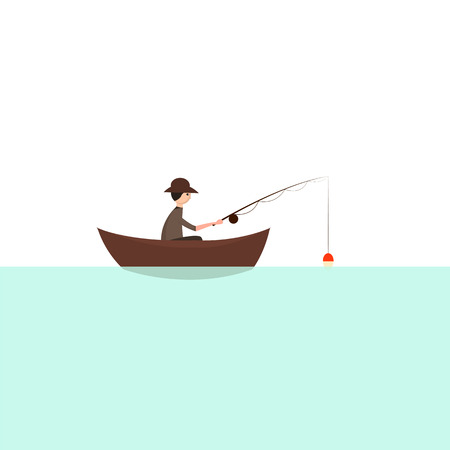Understanding Arizona Fishing License Laws
If you’re planning to cast a line in the sun-soaked waters of Arizona, it’s essential to start with a solid understanding of the state’s fishing license laws. In Arizona, almost everyone who fishes—residents and non-residents alike—is required to carry a valid fishing license. There are only a few exceptions, such as children under the age of 10 or anglers fishing on certain free fishing days designated by the Arizona Game and Fish Department (AZGFD).
Arizona offers several types of licenses to fit different needs. The standard options include annual licenses for both residents and non-residents, short-term (one-day or five-day) licenses for those visiting from out of state, and special combination hunt/fish permits. Additionally, there are reduced-fee options for youth, disabled veterans, and seniors. These variations ensure that locals and tourists alike can participate in angling while supporting conservation efforts.
The process for obtaining a fishing license is straightforward and designed to be accessible. Licenses can be purchased online through the AZGFD portal, at authorized retailers statewide (like sporting goods stores), or at Game and Fish offices. When applying, anglers need basic identification information and must select the type of license that best matches their planned activities. It’s important to remember that possessing a valid license isn’t just about legal compliance—it’s also about ethical stewardship of Arizona’s unique aquatic resources.
2. Why Licensing Matters: Conservation and Community
When it comes to fishing in Arizona, the requirement for a fishing license is more than just a legal formality; it’s a foundational tool for sustaining both the state’s unique aquatic ecosystems and its angling culture. The desert southwest presents distinct environmental challenges, making responsible management of its waterways critical. Understanding why licensing is mandatory helps anglers appreciate their role in conservation and community development.
Conservation Efforts Funded by Licenses
The revenue from fishing licenses directly supports conservation projects across Arizona. These funds are allocated to:
| Use of Funds | Description |
|---|---|
| Habitat Restoration | Rehabilitating rivers, lakes, and streams to maintain healthy fish populations. |
| Fish Stocking Programs | Introducing native and sport fish species to ensure balanced ecosystems and recreational opportunities. |
| Invasive Species Control | Managing non-native species that threaten local habitats. |
| Research & Education | Supporting scientific studies and public education on sustainable fishing practices. |
The Role of Licensing in Wildlife Management
Arizona Game and Fish Department relies on license sales as a primary funding source for wildlife management programs. Unlike some states that use general tax dollars, Arizona’s model ensures that those who benefit from outdoor recreation directly contribute to maintaining these resources. This user-pay, user-benefit system aligns with the North American Model of Wildlife Conservation, a framework respected throughout the United States.
How License Revenue Benefits the Community
The impact of fishing licenses extends beyond conservation. Local communities gain economic and social advantages through:
- Economic Boost: Fishing attracts tourists and locals alike, supporting bait shops, guides, restaurants, and lodging providers.
- Youth Engagement: License revenues fund outreach and education programs that introduce young people to ethical angling and environmental stewardship.
- Public Access Improvements: Investments are made in boat ramps, docks, and shoreline access points, ensuring everyone can enjoy Arizona’s waters safely and responsibly.
A Shared Responsibility
Ultimately, purchasing an Arizona fishing license is an act of stewardship. It empowers individuals to be part of a community that values conservation, respects local traditions, and works together to preserve the beauty and vitality of the desert southwest’s fisheries for generations to come.

3. Unique Challenges of Fishing in the Desert Southwest
Fishing in Arizona isn’t just about casting a line; it’s about adapting to one of America’s most arid environments. The desert landscape presents unique challenges that shape not only the culture of angling but also the laws and ethics surrounding it. Water is scarce, and most fishing happens in man-made reservoirs, small lakes, or seasonal streams. These bodies of water are often heavily managed and rely on careful regulation to support both recreational opportunities and fragile aquatic ecosystems.
The state’s climate means that water levels can fluctuate dramatically between seasons, impacting fish populations and habitat stability. This volatility drives Arizona Game and Fish Department’s regulations, which aim to balance human recreation with environmental conservation. Licensing fees, for example, help fund stocking programs and habitat restoration—critical efforts in a region where native species face intense pressure from drought, development, and invasive species.
Culturally, anglers in Arizona are accustomed to “catch-and-release” practices and seasonal restrictions designed to preserve fish stocks during vulnerable times of year. There is a strong sense of stewardship among local anglers who understand that the sustainability of fishing depends on respecting both legal requirements and the limitations imposed by nature itself. In this way, Arizona’s fishing laws are not just rules—they’re a reflection of community values forged in the crucible of the desert Southwest.
4. Ethics of Angling in Arizona
Fishing in Arizona is more than just following the state’s licensing laws—it’s about embracing a code of ethics that respects the unique desert environment and its aquatic life. The arid climate, limited water resources, and presence of both native and non-native species require anglers to adopt responsible outdoor behaviors that go beyond the legal minimums.
Catch and Release Practices
Practicing catch and release is a core ethical responsibility for Arizona anglers, especially when targeting threatened or sensitive species. Proper catch and release techniques minimize stress and injury to fish, ensuring their survival after release. This includes using barbless hooks, handling fish with wet hands or gloves, and minimizing the time spent out of water. Adhering to these guidelines preserves fish populations for future generations.
Respect for Native Species
Arizona’s waterways are home to several native fish species like the Apache trout and Gila trout, many of which face threats from habitat loss and competition with introduced species. Responsible anglers are encouraged to familiarize themselves with local species identification and follow regulations designed to protect natives. In some cases, this means releasing all native fish immediately or avoiding certain streams during spawning seasons.
| Ethical Practice | Description |
|---|---|
| Catching Limits | Follow posted bag limits to prevent overfishing and support sustainable fisheries. |
| Invasive Species Control | Do not transport live bait between waters; properly clean gear to prevent spreading invasive species. |
| Habitat Protection | Avoid trampling stream banks or disturbing sensitive riparian vegetation. |
Stewardship of Desert Waterways
The desert Southwest’s fragile rivers, lakes, and reservoirs need active stewardship. This means packing out all trash, reporting illegal dumping or poaching, and participating in local conservation initiatives. Anglers can also get involved with organizations that restore habitats or monitor water quality. By taking these steps, you help ensure that Arizona’s unique fishing opportunities remain available for years to come.
Summary of Angler Ethics in Arizona
- Practice responsible catch and release methods
- Respect all wildlife—especially protected native species
- Actively protect fragile desert habitats from harm
- Be an ambassador for ethical angling within the community
The ethics of angling in Arizona ultimately revolve around a deep respect for both law and land. By embracing responsible practices, anglers serve as stewards for the state’s precious aquatic resources.
5. Practical Tips for Desert Anglers
Fishing in Arizona’s desert landscapes can be a truly rewarding experience, but it comes with its own set of challenges and responsibilities. To ensure that your angling adventure is both legal and ethical, consider these practical tips for navigating the unique environment of the Desert Southwest.
Stay Informed and Legal
Before heading out, always check the latest Arizona fishing license requirements. Licenses can be purchased online or at authorized retailers, and you must carry proof while fishing. Make sure you understand bag limits, catch-and-release regulations, and any seasonal restrictions for the specific waterbody you plan to fish.
Prepare for Harsh Desert Conditions
The desert climate can be extreme—temperatures swing from intense heat during the day to chilly nights. Bring plenty of water, sun protection (like broad-brimmed hats and sunscreen), and dress in lightweight, breathable clothing. Start your outings early in the morning or later in the evening to avoid peak heat.
Practice Ethical Fishing Techniques
Use barbless hooks when possible to minimize injury to fish, especially in catch-and-release waters. Handle all fish gently and release them quickly if you’re not keeping your catch. Respect designated no-fishing zones and wildlife habitats, as these are often critical for native species recovery.
Respect Local Customs and Communities
Many Arizona fishing spots are located near tribal lands or within local communities. Always seek permission where required and honor posted guidelines. Avoid littering; pack out everything you bring in—including fishing line, bait containers, and food wrappers—to help preserve these fragile ecosystems for future generations.
Connect with Local Anglers
If you’re new to the area, don’t hesitate to reach out to local bait shops or angling clubs. These sources provide invaluable advice on current conditions, ethical practices, and region-specific tips for success. Building relationships within the community fosters respect and helps maintain Arizona’s cherished fishing traditions.
6. Enforcement and Consequences
Arizona takes its fishing license laws seriously, both to protect fragile aquatic ecosystems and to support ethical angling practices across the state’s unique desert waters. The Arizona Game and Fish Department (AZGFD) is the primary agency responsible for enforcing these regulations. Officers regularly patrol lakes, rivers, and reservoirs, checking for valid licenses and compliance with state fishing rules. They may ask anglers to present their fishing license and a valid form of identification at any time.
Violating Arizona’s fishing regulations can result in significant consequences. Common infractions include fishing without a valid license, exceeding bag or possession limits, using illegal bait, or fishing in restricted areas. Penalties can range from warnings and fines to confiscation of equipment and even criminal charges for repeat or egregious offenses. Fines often start at $150 for a first-time violation but can escalate quickly depending on the severity and number of infractions.
For non-residents and visitors unfamiliar with local rules, ignorance is not considered an acceptable excuse under Arizona law. Anglers are expected to educate themselves about licensing requirements, seasonal closures, protected species, and area-specific restrictions before casting a line. The AZGFD website provides updated information, and local tackle shops are often valuable sources of guidance.
Beyond legal repercussions, there is an ethical dimension to enforcement as well. Responsible anglers understand that following the rules isn’t just about avoiding penalties—it’s about ensuring healthy fish populations for future generations and respecting fellow outdoor enthusiasts. Adhering to the law also fosters positive relationships between anglers, landowners, tribal authorities, and conservation officials throughout the Desert Southwest.
If you are cited for a violation, it’s important to cooperate fully with officers. Contesting a citation typically requires a court appearance, which can be both time-consuming and costly. In some cases—such as poaching or repeated violations—individuals may face suspension of their fishing privileges within Arizona and even other states through reciprocal agreements.
Ultimately, understanding how Arizona enforces its fishing license laws empowers every angler to fish legally and ethically in the state’s distinctive desert waterways. By staying informed about regulations and respecting both the letter and spirit of the law, you help preserve Arizona’s fisheries for years to come.


